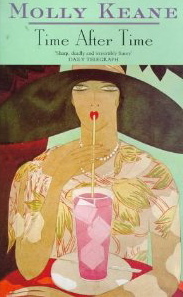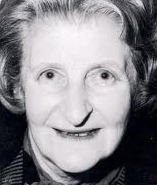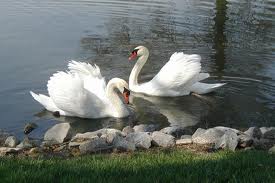“I just wish I was more of a Human Being.”
The cruelties o f life, both deliberate and accidental, play out with delicious irony in this very dark precursor to the modern noir novel. An elderly brother and his three aging sisters, all physically and emotionally maimed, are required, under the terms of their mother’s will, to share the rapidly deteriorating family estate, Durraghglass, near Cork, Ireland. April, the only sister who ever married, is totally deaf but refuses to acknowledge it. May, with a grossly deformed hand, compensates by making “artistic” pictures out of scraps of tweed–and by incidental shop-lifting.
f life, both deliberate and accidental, play out with delicious irony in this very dark precursor to the modern noir novel. An elderly brother and his three aging sisters, all physically and emotionally maimed, are required, under the terms of their mother’s will, to share the rapidly deteriorating family estate, Durraghglass, near Cork, Ireland. April, the only sister who ever married, is totally deaf but refuses to acknowledge it. May, with a grossly deformed hand, compensates by making “artistic” pictures out of scraps of tweed–and by incidental shop-lifting.
June, severely dyslexic, actively manages the “farm.” Jasper, blinded in one eye by June in a childhood accident, runs the moldy kitchen and makes gourmet meals out of scraps, sometimes even borrowing from the dogs’ meals to improve meals for the family. Each of the Swift family members, firmly controlled by “Mummie” and her memory, leads an almost totally isolated, secret-filled life, unable to share feelings or care for anyone else.

Their already precarious lives are tested with the unexpected arrival of Leda, a formerly glamorous, half-Jewish cousin from Austria, whom they all thought “perished in some cold, unnamed camp, most likely. Who wants sordid details?” Leda, once April’s best friend, bears grudges that hark back to her teen years, when her closeness to the family was deemed threatening to April’s mother and she was summarily removed from Durraghglass, never to return. With subtlety and cleverness, author Keane slowly reveals elements of Leda’s background and her connections to the family, using the dialogue, often at cross-purposes and always mordantly humorous, to reveal information, motivation, and character simultaneously. Irony builds upon irony as Leda’s actions and remarks, often misunderstood, succeed in turning one sibling against another.
 The myth of Leda and the Swan plays constantly in the background, with numerous symbolic references to the swans on the pond at Durraghglass and to Leda’s swan-like preening. The Swifts, to continue the bird imagery, are no competition for Leda. As the tension of this domestic drama ratchets up and Leda wreaks her havoc, fate has a few ironies left in store. Unexpected resolutions, equivalent to those of a Greek tragedy, bring the novel to a wickedly satisfying close.
The myth of Leda and the Swan plays constantly in the background, with numerous symbolic references to the swans on the pond at Durraghglass and to Leda’s swan-like preening. The Swifts, to continue the bird imagery, are no competition for Leda. As the tension of this domestic drama ratchets up and Leda wreaks her havoc, fate has a few ironies left in store. Unexpected resolutions, equivalent to those of a Greek tragedy, bring the novel to a wickedly satisfying close.
Notes: The author’s photo appears on http://www.irishtimes.com
The swan photo is from http://freepages.genealogy.rootsweb.ancestry.com
